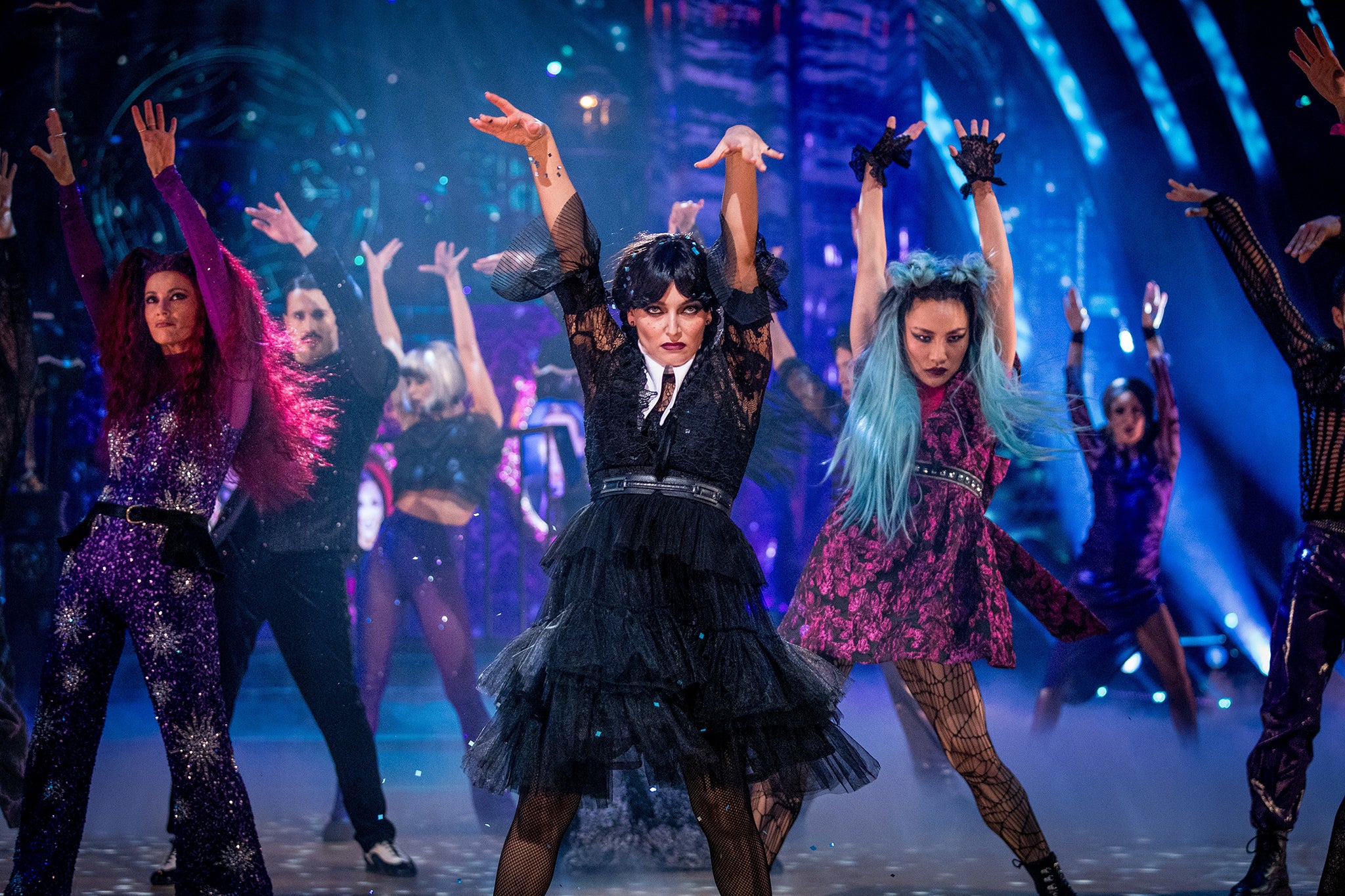I’m a Halloween snob, but even I’ve fallen for its spooky charms
No fan of Strictly’s horror-themed special or shrieking trick-or-treaters at the door, Catherine Pepinster admits she has slowly realised that there’s more to 31 October than macabre nonsense


When the children of Kurdejov, in the Czech Republic, put out an early display of pumpkins for their village’s Halloween parade a few days ago, the parish priest took one look – and decisive action. He stamped on the lot, denouncing them as a Satanic feast.
I wouldn’t go quite as far as Father Jaromir Smejkal, whose vandalism brought tears from the children, outrage from their parents, and an eventual apology from him. I loathed Halloween for years. Spare me, please, from yet another themed Strictly extravaganza where couples dance to “Monster Mash” and the theme from Ghostbusters, from the supermarkets filled with plastic bats and witches hats. And I really can’t bear the thought of ageing Duran Duran burdening us with their new fright-night offering, Danse Macabre, launched in time for 31 October.
This year, I have at least decided to show willing. I will be in New Orleans for Halloween, a city that has a particular talent for the gothic and ghostly. The French Quarter will be busy with spectral walks, and the fabulous Belle Epoque mansions of the Garden District will be swathed in cobwebs. I thought I might approach it all from a sort of lofty anthropological perch, viewing the city in its Interview with the Vampire-meets-pumpkins moment as an insight into how today’s Big Easy combines Creole-French-Spanish-colonial legacy with contemporary commercialism.
But now, two comments I’ve heard in the last couple of weeks have changed my view of 31 October. I am no longer a Halloween snob. I love it.
First, there was a throwaway remark from a Catholic theologian I was chatting to in Durham. We were taking a look at the cathedral’s bookshop, which doubles as a gift emporium. A few Christmas items were already on display, and I commented that a lot of shops had not gone into full-on Christmas mode yet, because they were chockful of Halloween tat. My theologian friend confessed to a liking for Halloween’s popularity. “So good to see a reminder of Catholic liturgy,” he said.
This would no doubt shock Fr Jaromir, over in the Czech Republic, who declared his destruction of the children’s carved pumpkins as his duty in the face of a devilish holiday. But as a Catholic myself, I have to admit that my theologian chum is right.
The origin of the name Halloween lies in it being the eve of the feast of All Saints – those who are hallowed by the Church as good and holy – and the day after that, 2 November, is the feast of All Souls, when Catholics remember all those who have died. Going even further back, the Celtic festival of Samhain saw people lighting bonfires and donning costumes to ward off spirits at a time when the season changed to winter and the boundary between the living and the dead was more blurred.
Then in the eighth century, Pope Gregory I instituted the feast of All Saints as the great celebration of those it believed had reached paradise. Christianity has always been proficient at incorporating ancient pagan rituals into its traditions – think mistletoe at Christmas and eggs at Easter – and All Saints was no different. The eve of All Saints or All Hallows became a time when the ghouls and the evil spirits were in the last-chance saloon, abroad before such a holy day was marked.
In America, settlers from Catholic countries, including Ireland, brought their All Saints’ traditions with them, and combined them with aspects of life there, including harvest, where pumpkins loomed large. And now Halloween has returned across the Atlantic to Europe – bigger, brasher than it used to be, but, yes, there are traces of Catholic liturgy still lurking.
But another remark has made me appreciate Halloween even more. The BBC’s international editor, Jeremy Bowen, was reporting from the West Bank the other day, from a Muslim funeral that was even more grief-stricken than usual, marked as it was by overwhelming distress and anger at what was happening in Gaza as part of the current conflict with Israel. The funeral, said Bowen, had become part of the “politics of the dead”.
It was then that it struck me. We can all pretend to be frightened by fake spiders and bats, and irritated by the constant banging of the door knocker by kids trick-or-treating. We can shiver at ghost walks or cemetery tours. But above all, we can fake fear because we are safe. We are in countries not at war.
Halloween is enjoyed by children who love to think there might be a phantom around the corner, or a devilish imp about to chase them down the road. But at the end of the night, they can sleep safely in their beds. Halloween is a link to an ancient Catholic ritual about the dead. But it has no politics of the dead.
Thank the Lord – and thank the saints.
Join our commenting forum
Join thought-provoking conversations, follow other Independent readers and see their replies
Comments
Bookmark popover
Removed from bookmarks